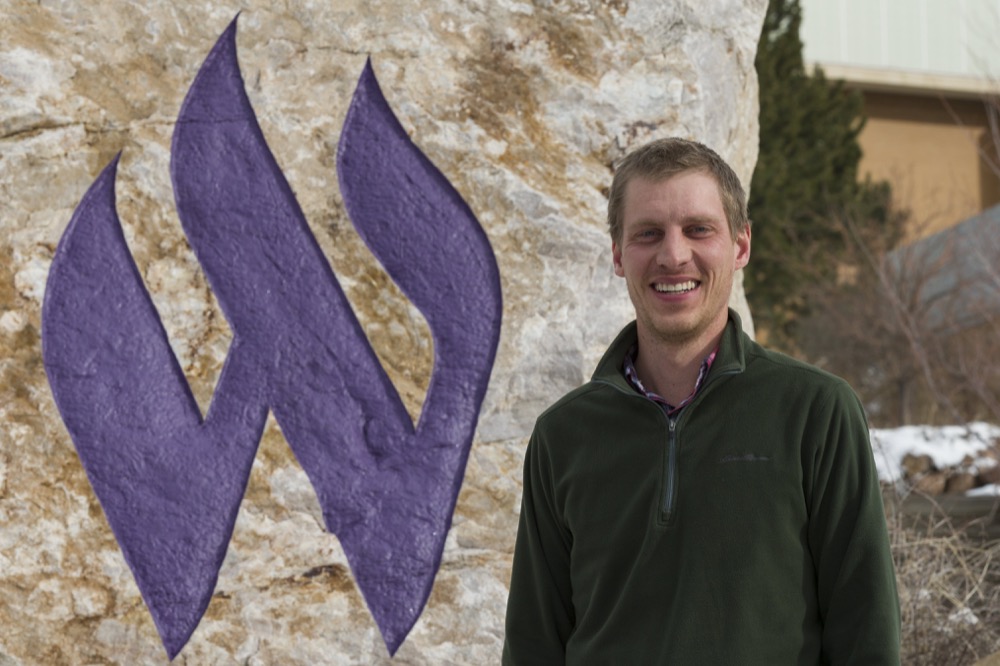Matt Gnagey, now an assistant professor at Weber State (Ogden, Utah), graduated from Eastern Mennonite University in 2005, majoring in economics and justice, peace and conflict studies. He received his doctorate in agricultural, environmental and development economics in 2014 from The Ohio State University.
Describe your research and professorship at Weber State.
I am in my third year as an assistant professor of economics at Weber State University. My research is focused on understanding the environmental and economic impacts of land use, and the valuation of non-market environmental amenities. One study analyzes the value of recreational trail access for the local community, focusing particularly on the heterogeneity of valuations in different neighborhoods in the city.
The “heterogeneity of valuations in different neighborhoods” is essentially saying that different communities in Ogden place different premiums of access to trails. We are interested in examining which communities/neighborhoods place the highest value on the trails, and which communities/neighborhoods in the city do not value the trails as much.
We also find improvements in trail accessibility have been significantly capitalized into home values. For another project, we conducted experiments with nearby urban households to understand intra-household monetary trade-offs across time with the goal of informing policies that could promote greater investment in the future at the household level.
I am also currently conducting research with a former Mennonite Central Committee (MCC) colleague analyzing property markets in Indonesia, particularly focusing on differences between rural and urban property markets, and the role land tenure plays in determining property prices.
Weber State is an open enrollment institution, serving the community of Northern Utah. A large number of students have families and work 20 to 40 hours a week. I mostly teach courses in microeconomics, statistics and quantitative methods, and last summer I taught at our partner university in Shanghai. I also serve on the University’s Environmental Issues Committee, and am the faculty adviser to the Chinese Student Association.
How did your academic studies and professors at EMU prepare you for your graduate studies and current work?
The most important lesson I learned at EMU was to make connections between disciplines. A PhD requires a deep dive into one particular field, but my liberal arts background gave me the ability to maintain balance in my life and keep perspective.
What do you think made your application to graduate school stand out among others?
I believe three things made my application stand out for graduate school. First, I spent three years working with MCC in Indonesia, where I gained valuable experience in the field of economic development. Second, the economics major at EMU has a great track record of placing students successfully into graduate programs. When I applied to graduate school, the reputation of previous students opened door which may not have been available otherwise. And third, I believe my letters of recommendation from EMU faculty, and particularly the letter from my advisor Professor Chris Gingrich made my application stand out. Chris knew me well through classes, but also friendly tennis matches and frequent cups of coffee. And even though I graduated four years prior, Chris took time to provide support and guidance through the application process. These strong student-teacher relationships are a clear advantage of EMU’s model of education, which larger institutions cannot easily replicate.
I believe EMU facilitates those relationships in ways that larger institutions cannot easily replicate. And now, as I am in the position of writing letters of recommendations for my students, I recognize how much stronger of a recommendation I can make for students with whom I have worked closely on research or with whom interact with outside the classroom.
What do you think makes EMU graduates distinctive?
I believe a liberal arts education prepares students to be more versatile on the job market and more thoughtful citizens. There are big problems that need to be tackled in this world, and I think EMU graduates are distinctive in their ability and willingness to take on those problems.
What attracted you to attend EMU as an undergraduate?
I often make life choices based on the choices of successful role models who went ahead of me. While I was interested in attending a liberal arts university that placed a strong emphasis on small class sizes, high quality teaching, and cross-cultural experiences, the main reason I attended EMU was because of EMU alumni. Growing up, many of the adults I knew and respected were EMU alumni (including my dad), so I determined that the commonality of attending EMU was not a coincidence. I concluded EMU would prepare me well if I wanted my future self to be a citizen with similar values and experiences as my role models.
What are some favorite memories of your time at EMU?
My cross cultural to the Middle East with Linford and Janet Stutzman gave me new perspective on the complexities of conflict.
As a part of a “Sustaining the Peacebuilder” course, we took a trip to Pennsylvania to participate in an Alternatives to Violence training with inmates at Graterford maximum security prison. The professor was Earl Zimmerman. That experience completely shattered my preconceived notions about our criminal justice system, and even today I frequently reflect back on that experience.
I enjoyed attending the American Economic Association annual conference with economics professors Chris Gingrich and Rick Yoder. At the conference, we went to presentations from top academics and leaders of the Federal Reserve. That experience motivated me to consider studying economics at graduate school.

Proud of you Matt.
Keep up the good work Matt!